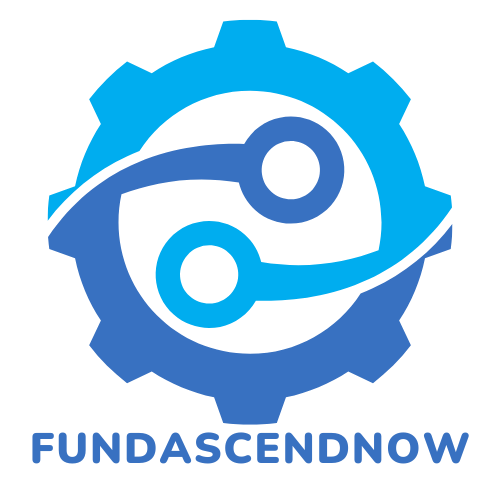In today’s digital age, web development is the new gold rush. Every business wants a stunning website that dazzles visitors and keeps them coming back for more. But where do aspiring developers go to learn the ropes? Enter the web development school—a magical realm where coding wizards are born and tech-savvy heroes rise to the occasion.
Table of Contents
ToggleOverview of Web Development Schools
Web development schools provide targeted education for individuals pursuing careers in creating and managing websites. These institutions offer structured programs that teach essential coding languages, frameworks, and design principles.
What Is a Web Development School?
A web development school focuses on imparting technical skills required for web development careers. These schools offer various learning formats, including online courses, boot camps, and traditional classroom settings. Students engage with instructors and peers, working on real-world projects to build practical experience. Many programs cover languages such as HTML, CSS, JavaScript, and frameworks like React and Angular. Graduates often find themselves well-prepared for entry-level positions in the industry.
Importance of Web Development Education
Education in web development holds significant value in the tech landscape. The demand for skilled developers continues to grow, creating numerous job opportunities. Well-structured programs provide learners with industry insights and networking opportunities. Competency in web technologies enhances growth prospects and earning potential. Students benefit from hands-on experience, which prepares them for challenges in the field. Investing in this education equips individuals with the tools necessary for long-term success in web development careers.
Types of Web Development Programs
Web development programs vary widely, catering to different learning preferences and career goals. Understanding these types helps aspiring developers choose the right path.
Diploma vs. Degree Programs
Diploma programs focus on foundational skills, offering practical training in coding languages and frameworks. They typically take a shorter time to complete, often under a year. Degree programs, on the other hand, provide a more comprehensive education and usually require two to four years for completion. They delve into computer science concepts and often cover topics like algorithms and software engineering. Cost also differs; degree programs tend to be more expensive than diploma programs. Deciding between these options depends on long-term career aspirations and educational preferences.
Online Learning vs. Traditional Classrooms
Online learning delivers flexibility, allowing students to learn at their own pace and from any location. Many online platforms offer interactive materials and access to instructors through virtual classrooms. Traditional classrooms provide structured environments and face-to-face interactions with teachers and peers, fostering collaborative learning. Students may benefit from hands-on experiences using live coding sessions and group projects. Each format has its advantages, with online learning ideal for those needing flexibility and traditional settings suitable for learners who thrive in in-person environments.
Factors to Consider When Choosing a Web Development School
Choosing a web development school requires careful consideration of various factors. Each element impacts an individual’s learning experience and career readiness.
Curriculum and Course Offerings
Curriculum quality plays a vital role in education. A well-rounded curriculum covers essential languages such as HTML, CSS, and JavaScript. Students benefit from programs that include hands-on projects aligning with current industry demands. Course offerings should also encompass web design principles, user experience, and version control systems. Schools with diverse electives allow learners to tailor their education according to personal interests. In addition, programs that incorporate the latest frameworks like React and Node.js keep students up to date with technological advances. Analyzing curricula helps aspiring developers find a program that matches their career goals.
Faculty and Industry Experience
Faculty expertise significantly affects the learning environment. Experienced instructors often share insights from real-world projects, enhancing the educational experience. Educators with backgrounds in web development bring practical knowledge to the classroom. They guide students through complex concepts and provide mentorship opportunities. Schools that prioritize hiring industry professionals typically maintain strong connections with tech companies. Networking opportunities arise through industry events and guest lectures, connecting students with potential employers. Evaluating faculty credentials offers valuable insight into the quality of instruction and overall program effectiveness.
Benefits of Attending a Web Development School
Attending a web development school offers numerous advantages essential for aspiring developers.
Networking Opportunities
Networking opportunities prove critical in the tech industry. Students cultivate relationships with instructors who have real-world experience, fostering valuable connections. Engaging with peers also allows individuals to form professional networks that may lead to job opportunities. Schools often host events, workshops, and job fairs, where students meet industry professionals. These events provide insight into trends and expectations in the field. Collaborating with like-minded individuals further enhances personal growth and skill development.
Access to Industry Tools and Resources
Access to industry tools and resources plays a crucial role in education. Students utilize up-to-date software and technologies relevant to current industry standards. Schools often incorporate popular coding platforms and frameworks in their curriculum, promoting hands-on experience. Learning to navigate these tools boosts students’ confidence and employability. Furthermore, many institutions offer access to online resources, tutorials, and forums, expanding learning opportunities beyond the classroom. This comprehensive approach equips students with the foundational skills required for success in a competitive landscape.
The journey into web development is filled with opportunities for those ready to embrace the challenge. With the right education from a web development school, aspiring developers can gain the skills necessary to thrive in this dynamic field. Choosing the right program tailored to individual needs can make all the difference in achieving career goals.
Networking and hands-on experience play crucial roles in enhancing employability. As the demand for skilled developers continues to rise, investing in quality education becomes essential. By taking the first step towards learning, individuals position themselves for success in a rewarding and ever-evolving industry.



